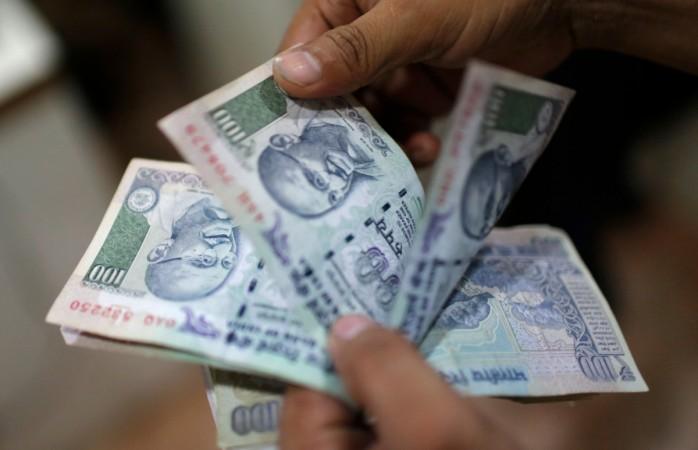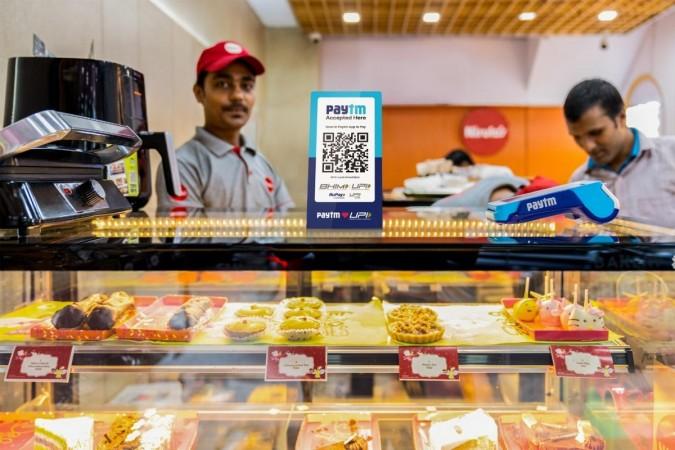
Bengaluru is going back to cash transactions, as many vendors refuse UPI payments across the city. This change is primarily driven by small shopkeepers and street vendors who are increasingly opting out of Unified Payments Interface (UPI) transactions due to concerns over tax notices and regulatory scrutiny. The familiar sight of QR codes is being replaced by hand-written signs that read, "No UPI, only cash." This trend is a response to the growing fear among vendors of receiving tax notices under the Goods and Services Tax (GST) regime.
The Economic Times reports that many vendors in Bengaluru have received GST notices, some of which were issued to small businesses not even registered under GST. These notices have demanded tax payments running into lakhs of rupees, causing significant distress among small business owners.
Shankar, a roadside shop owner in Horamavu, Bengaluru, shared his plight, stating, "I make about Rs 3,000 a day and survive on the little profit I earn. I have stopped using UPI because I cannot afford any more tax-related stress."
The Karnataka Commercial Taxes Department has defended its actions, stating that GST notices were only sent to businesses whose UPI records from 2021-22 showed earnings higher than the legal limits.
According to GST rules, businesses selling goods must register if their yearly sales exceed Rs 40 lakh, while the limit for service businesses is Rs 20 lakh. The department insists that businesses crossing these thresholds must register, disclose their taxable income, and pay GST accordingly.
Impact on digital payment adoption
Despite these regional concerns, UPI remains a dominant mode of digital transactions among India's micro, small, and medium enterprises (MSMEs). According to PayNearby's MSME Digital Index Report, 48% of MSMEs use UPI, while 39% rely on Aadhaar-enabled banking. Among women-led enterprises, Aadhaar-based payments are even more popular at 42%.
The report, based on a nationwide survey of 10,000 small businesses, including kirana stores, medical shops, and travel agencies, also revealed that 71% of users now rely on smartphones for business, with even higher adoption among women at 84%.

Since its launch in 2016, UPI has grown quickly, while some proxies for cash usage have begun to decline. UPI now processes more than 18 billion transactions per month and dominates other electronic retail payments in India, according to the note titled 'Growing Retail Digital Payments: The Value of Interoperability.'
The shift back to cash in Bengaluru is not just about tax concerns. Vinay K Sreenivasa, a member of the Federation of Bengaluru Street Vendors Associations, highlighted that vendors also fear harassment by tax officials or even eviction from their vending locations by city authorities. This fear has led many to stop using digital payments altogether.
Challenges with GST compliance
The GST regime, introduced in 2017, was aimed at creating a unified tax structure across India, replacing multiple indirect taxes with a single tax. While it has streamlined tax processes, it has also introduced complexities, especially for small businesses. Frequent amendments and increasing compliance requirements have added significant costs and burdens, particularly for MSMEs, which are often resource-constrained.
The issue of tax notices based on digital payment data is not unique to Bengaluru. Across India, businesses have faced challenges with GST compliance, often due to discrepancies in data or misunderstandings of the tax code. The GST audit period can extend up to 5-6 years after the end of the financial year, which can be a long window for businesses to maintain accurate records, especially when staff and accountants change over time.
In response to these challenges, some experts have suggested that the government consider reducing the audit period gradually and leveraging technology to flag discrepancies in real-time. This approach could reduce the burden on businesses and minimize opportunities for harassment.

















